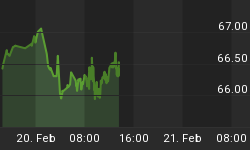Iran’s president Hassan Rouhani has replaced several senior economic officials a week before U.S. sanctions against Tehran come into effect, Sputnik reports, citing a statement by Rouhani from Sunday.
As part of the reshuffle, economist Farhad Dejpasand will take the helm of the Ministry if Economics and Finance and will work with a new team to find ways to weather the effect of the sanctions, which prompted the International Monetary Fund to revise down its outlook for Iran for this year from a 4-percent GDP expansion to a 1.5-percent contraction. For 2019, the IMF has forecast even deeper recession of up to 3.6 percent, versus an earlier estimate for growth of 4 percent in 2019 as well.
Meanwhile, Tehran officials remain relatively upbeat: the country’s Vice President Eshaq Jahangiri said this weekend, as quoted by IRNA, that Washington will not be able to reduce Iranian crude oil exports to below 1 million bpd.
“During the past months [before US sanctions threat], Iran was exporting 2.5 million barrels of oil per day,” the VP said. “now maybe we are exporting a few thousand barrels less, but we have always been determined that our oil exports should not become less than one million barrels per day.”
Jahangiri’s comments suggest Tehran has been preparing for a certain reduction in exports and higher oil prices—despite the recent slip on global economic growth concerns—will help it mitigate the effect of the sanctions.
The government’s efforts, however, face an internal division, as hardliners insist on greater self-sufficiency in the face of sanctions while more moderate factions are for greater cooperation with the countries who have opposed the sanctions, including the European Union, Russia, and China.
Rouhani himself has urged all factions to work together to deal with the sanctions, but he is firmly in the moderates’ camp, urging for closer trade contracts with allies.
By Irina Slav for Oilprice.com
More Top Reads From Safehaven.com

















